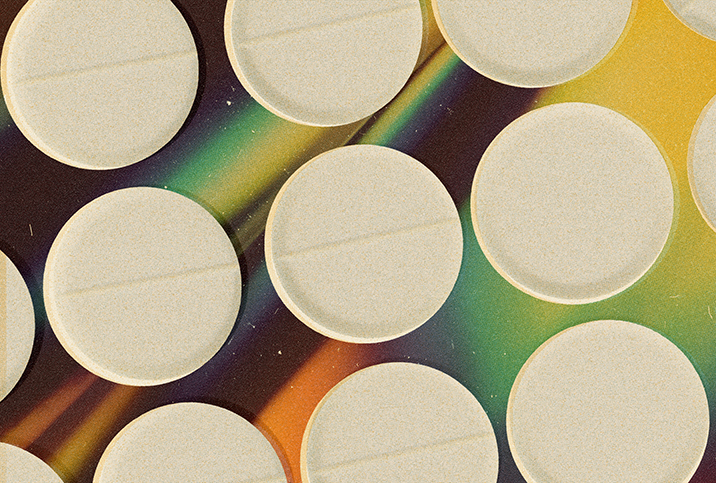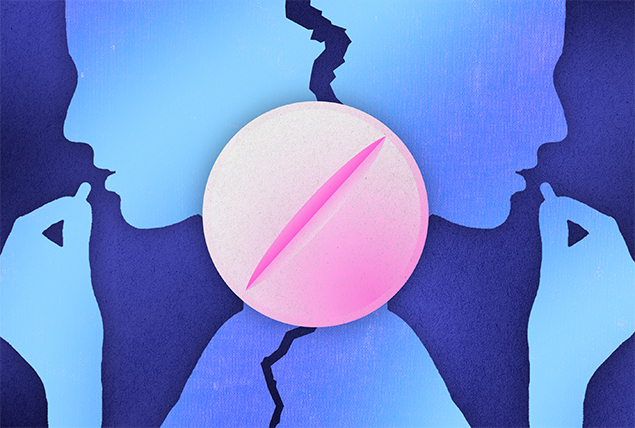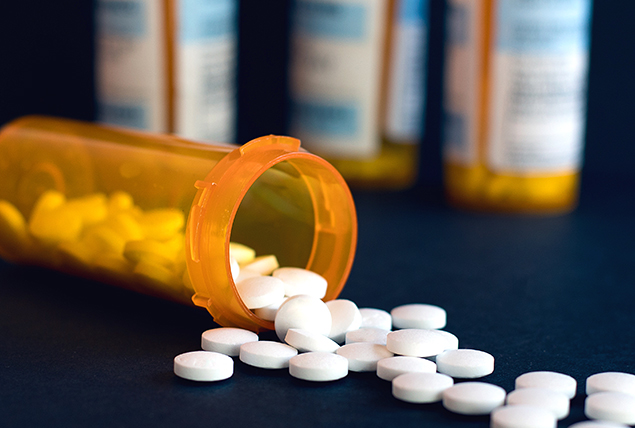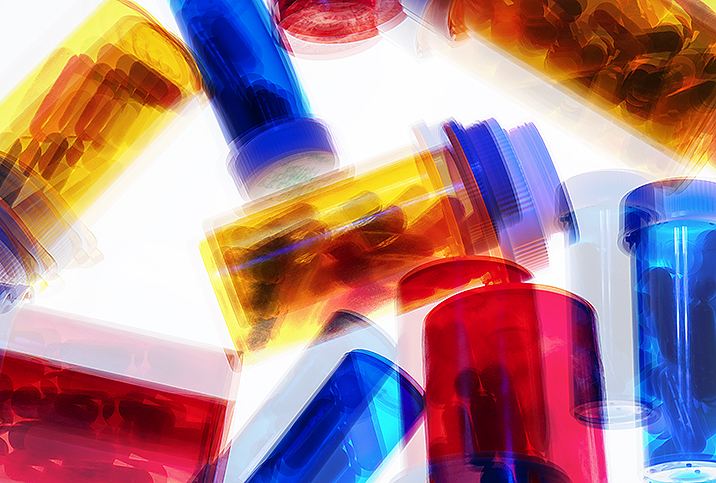How to Navigate Relationships and Recovery From Opioid Use Disorder
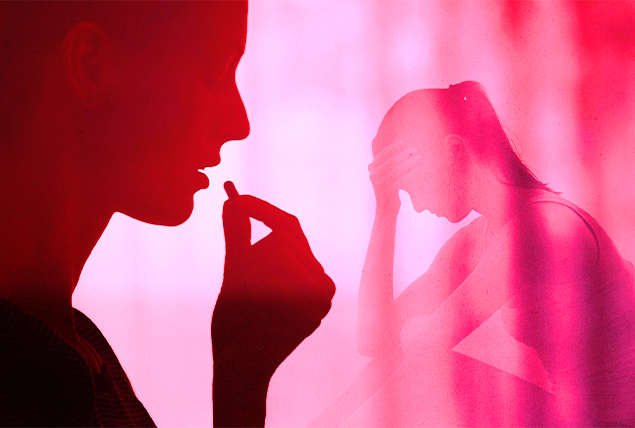
Opioid use disorder (OUD) is a chronic, life-threatening medical condition that affects about 3 million people in the United States, according to the National Library of Medicine. The illness can affect every facet of a person's life and well-being, from their physical and mental health to work and relationships.
The condition is incurable but is treatable with the help of medical professionals. Recognizing the problem and entering treatment are important first steps, but recovery is a lifelong journey for most people.
Recovering from OUD is a complex and lengthy process, in part because of the condition's profound, lasting impact on the brain and body. Opioids are a class of drugs that act on opioid receptors in the body to intercept pain signals and elicit euphoria and relaxation. Over time, using them can permanently alter brain structure and function.
These drugs include illicit substances such as heroin, and pharmaceuticals such as oxycontin, morphine and hydrocodone. All opioids can be addictive, but some—fentanyl is a primary example—are substantially more potent and dangerous than others.
Many opioids are classified as essential medicines by the World Health Organization (WHO) because they are used to treat severe, acute pain caused by surgery or serious injuries, such as fractures. However, opioids are often misused, and about 10 percent of users become addicted, according to Mayo Clinic.
OUD claims tens of thousands of lives yearly, and those who survive the disorder can face various challenges, including sexual health implications.
One of the most common complications of OUD is an opioid-induced endocrine deficiency, where hormones such as testosterone, estrogen and progesterone are lacking. As a result, people may experience menstrual irregularities, low libido, erectile dysfunction and diminished fertility. OUD can also raise the risk of pregnancy complications.
Additionally, people with OUD may have distinct difficulties dating and repairing relationships affected by the disorder. For all these reasons and more, a strong support system is crucial.
If you or someone you love is recovering from OUD, here's what you should know about the process.
How can you recover from OUD?
Rehabilitation programs may require a few weeks or months to complete, but recovering from opioid use disorder is a lifelong process, said David Deyhimy, M.D., the founder and medical director at MyMATClinic in New York City.
"We look at this as a chronic disease where changes in the brain have occurred," Deyhimy said. "The idea that you're going to do a 30-day treatment program and get cured is a total fallacy."
OUD is incurable and must be managed like any other chronic condition, said Dung Trinh, M.D., the chief medical officer at Healthy Brain Clinic in Long Beach, California. A crucial part of that management is medication, such as methadone, buprenorphine or naltrexone, according to the National Institute on Drug Abuse (NIDA).
Medication for OUD addresses the neurological changes caused by the disorder, which is essential to curb cravings, break the addiction cycle, and reduce the risk of relapse and overdose.
Approximately 75 percent of people who receive medication-assisted treatment (MAT) do not relapse—or relapse only briefly—within a year, Deyhimy said. By contrast, up to 95 percent of people who don't receive medications relapse within three months of stopping opioids.
"When patients are on the proper medications, the chances of them doing well long-term go up dramatically," Deyhimy said.
Complementary tools such as behavioral therapy, counseling and support groups often supplement medication to aid in the long-term recovery process, providing coping skills for recovery. For patients with co-occurring disorders such as chronic pain or underlying mental health conditions, managing these issues with safe, non-addictive means is likewise essential, experts said. So, too, is establishing a robust social support system.
"Support from friends and family can make a significant difference in the recovery journey of someone with opioid use disorder," Trinh said.
Dating in recovery
OUD, which Deyhimy called a "disease of isolation," can decimate relationships. Mending severed ties and forging new bonds is critical for long-term recovery, and romantic partners can be support pillars. However, experts caution that dating during recovery has its downsides; putting recovery first is paramount.
Dating in recovery can increase the risk of relapse because many people use substances to cope with negative emotions, according to Briana Severine, L.P.C., the founder of Sanare Psychosocial Rehabilitation in Denver. While dating can bring happiness and love, it's equally likely to do the opposite.
"Substance abuse is an unhealthy coping mechanism for negative or unwanted feelings, emotions or stressors," she said. "While dating can be fun and exciting, it can also be a source of stress. The fear of rejection can impact people pretty intensely."
Another potential problem is that people in recovery often date others in recovery, Severine added. Dating an addict in recovery can be "wonderful and supportive," but the risk of relapse is high. She explained that if one partner returns to use, the other partner may feel extremely triggered to do so as well. The risk is even higher when both parties share a home or finances since these entanglements can create additional stresses and triggers.
If a person in recovery feels inclined to date, Severine recommends talking about it with trusted people—a sponsor or a therapist—before they proceed.
"I think that we often have blind spots in our own behavior, motives and patterns, and sometimes having the ability to be open to others' thoughts can be helpful," she said.
Typically, people are ready to date when they no longer feel shame about being sober and can readily and confidently say "no" to temptation, Severine said. Having the ability to healthfully cope with a relationship's ups and downs is equally crucial.
"We know that heartache and emotional pain can lead to relapse, so I would also want them to feel comfortable that they could navigate rejection and those big feelings without turning to drugs or alcohol to cope," she said.
People in recovery should bear in mind that sexual encounters might be different sober.
"For many people, most of their sexual encounters have been while they are under the influence. Experiencing 'sober sex' might be an exciting prospect for some and a terrifying prospect for others," Severine said. "I would encourage folks to make sure that they feel ready to have physical intimacy without substances that have allowed them to lower their inhibitions."
When it comes to disclosing the disorder, Severine recommends you tell a new partner sooner rather than later—potentially before the first date. Severine said OUD has an extraordinary mortality rate and finding acceptance and supportive people is vital.
"If you had a peanut allergy, would you ever date anyone that said, 'Oh come on, it's no big deal? You can have one peanut?'" she said. "Anyone who isn't able to be supportive of [substance] abstinence isn't the one for you."
Whether they are partnered or single and looking, people in recovery should focus on maintaining the habits, routines and nonromantic relationships that have helped them in their journey thus far, Severine said. She also stressed the importance of communicating these needs with a partner so they can provide understanding and support.
Dating someone in recovery is easier if both parties are aware of the potential difficulties.
How to support someone with opioid use disorder
The number one way to support someone with OUD is to carry an overdose prevention medication, like naloxone, at all times, according to Deyhimy. Relapse is not inevitable; it is always possible and can be lethal. These medications are available over the counter without a prescription and are easy to administer.
"People that have an opioid use disorder and people that care for them and live with them all should be carrying drugs like Kloxxado, which have been shown to decrease overdose deaths by as much as 76 percent," he said.
There are several other ways to support someone with OUD, according to Mercedes Kent L.C.S.W., the clinical supervisor at the Springfield Outpatient Program of Gateway Foundation in Illinois, and others.
Educate yourself about OUD
Understanding how the disease changes the brain and its underlying causes and long-term effects can help you to understand what someone with OUD is going through and how to support them best. Recovery isn't linear, Deyhimy said, and it is important to understand there will be setbacks and obstacles. Preempting these, or constructively coping with them, can stop problems from compounding.
Offer emotional support
Let a person with OUD know you care about them and support their efforts in recovery. Encourage them to discuss their feelings and listen without judgment. Also, ask if they would appreciate accompaniment for doctor's appointments, therapy sessions or support group meetings.
Assist with practical tasks
People with OUD might struggle with everyday tasks like paying bills or grocery shopping, Trinh said. Helping them with these can help to relieve stress so they can focus on recovery.
Communicate openly
Talk to your partner about what they need to protect their sobriety, including any triggers to avoid. For example, some people might struggle if a partner drinks around them, Severine said, while others are unaffected. It may also be important to discard any old prescription medications in the house and help them avoid certain triggering situations or relational patterns.
Celebrate milestones
Celebrate notable points in a person's recovery journey, including days or weeks of sobriety or completing a treatment program.
Resources
Overcoming OUD can be difficult for the person in recovery and their loved ones, and both require community and resources.
"Supporting someone in recovery from opioid use disorder can be challenging and emotionally taxing," Trinh said. "Caregivers and loved ones also need support to help them navigate this journey."
Some of the best resources include the following:
- Support communities. Groups like Narcotics Anonymous, SMART Recovery and National Alliance on Mental Illness (NAMI) Family-to-Family Program exist for people in recovery and their family, friends and partners. They can provide a sense of community and accountability.
- Sober living homes. For people in recovery who don't have a stable home environment, sober living homes can provide a haven.
- Employment and education programs. Trinh said that meaningful activities like work and education can provide a sense of purpose and fulfillment that supports long-term recovery.
- Mental health treatment. Many people with OUD have co-occurring mental health disorders such as post-traumatic stress disorder, depression or anxiety, experts said. Treating these is essential for sustained sobriety.
- Family or couple's therapy. Seeking counseling can help repair relationships marred by addiction and substance use and provide people with the tools to support one another.
Additional resources include:












